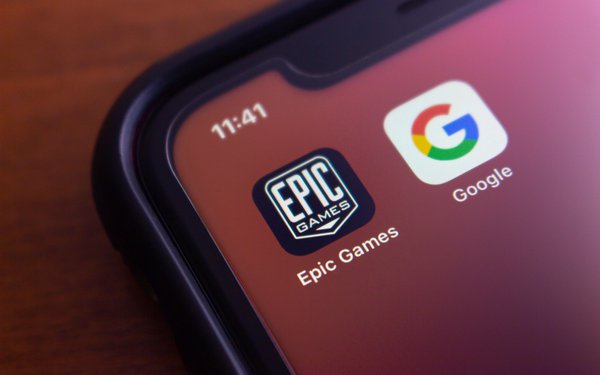
Siding against Google, a federal appellate court
affirmed a jury's finding that the Play Store policies violated antitrust law, and upheld an injunction requiring the company to revamp its app marketplace.
The decision, issued Thursday by a three-judge panel of the 9th Circuit Court of Appeals, comes in a battle dating to
2020, when Fortnite developer Epic Games sued both Google and Apple for allegedly violating antitrust laws.
Epic brought suit soon after both Google and Apple removed Fortnite
from their mobile app marketplaces for allegedly attempting to bypass Google and Apple commissions on in-app purchases. Both Google and Apple charge a commission on purchases made in apps that have
been downloaded from Google Play or the App store.
advertisement
advertisement
Unlike Apple, Google has always allowed users to “sideload” apps -- meaning to download them from sources other
than Play Store. Google doesn't charge commissions on in-app purchases from sideloaded apps.
But Epic contended that Google only "nominally" allows sideloading, arguing that it
thwarts consumers' ability to actually sideload apps by displaying warnings about potential security risks. (Google -- which was also sued by state attorneys general -- said last year it would streamline the sideloading process.)
Epic's suit against Apple went to trial in 2021, and largely resulted in a defeat for Epic. U.S. District Court Judge Yvonne Gonzalez Rogers in the Northern District of California, who
presided over the non-jury trial, ruled that Epic failed to prove the bulk of its claims.
Nearly two years later, Epic's suit against Google went to trial
and ended in a jury verdict that Google created or maintained an illegal monopoly in two “markets” -- Android app distribution, and Android in-app billing. The jury also found that Google
wrongly tied company's ability to distribute through the Play store to Google's payment system.
Google appealed the jury's finding to the 9th Circuit. Among other arguments,
Google said the verdict should have been precluded on the grounds that it was inconsistent with Rogers' ruling in Epic's suit against Apple. Rogers said in her ruling that Google and Apple compete to
distribute apps.
The 9th Circuit rejected Google's argument on that point, writing that the claims in Epic's suits against Apple and Google were not "identical."
"Epic’s claims against Apple involved meaningfully different commercial realities and theories of harm from its claims against Google," 9th Circuit Judge Margaret McKeown wrote
in an opinion joined by Danielle Forrest, and Gabriel Sanchez.
McKeown elaborated that Apple's "walled garden" approach, which involves maintaining control over the apps
allowed on its devices, is "markedly different" from Google's open distribution. She added that Apple -- unlike Google -- doesn't license its operating system to other phone manufacturers.
She also said it was "of little consequence that Apple and Google were previously found to compete" in the market for mobile games because the claims against Google "focused on gaming
within the Android ecosystem."
McKeown added that the market for games within the Android ecosystem and mobile games overall overlap, but are not identical.
Last October, U.S. District Court Judge James Donato in San Francisco, who presided over the Google trial, issued a sweeping injunction that requires Google Play to host other
companies' app stores, and give those companies access to Google's library of apps.
The injunction -- which Donato said should last for three years -- also prohibits Google
from forcing developers to use its billing system for Play Store apps, among other provisions.
The injunction had been stayed pending appeal, but the stay apparently was lifted
Thursday.
After the ruling came out, Epic CEO Tim Sweeney posted to X (formerly Twitter), "Thanks to the
verdict, the Epic Games Store for Android will be coming to the Google Play Store!"
Google reportedly plans further appeals.